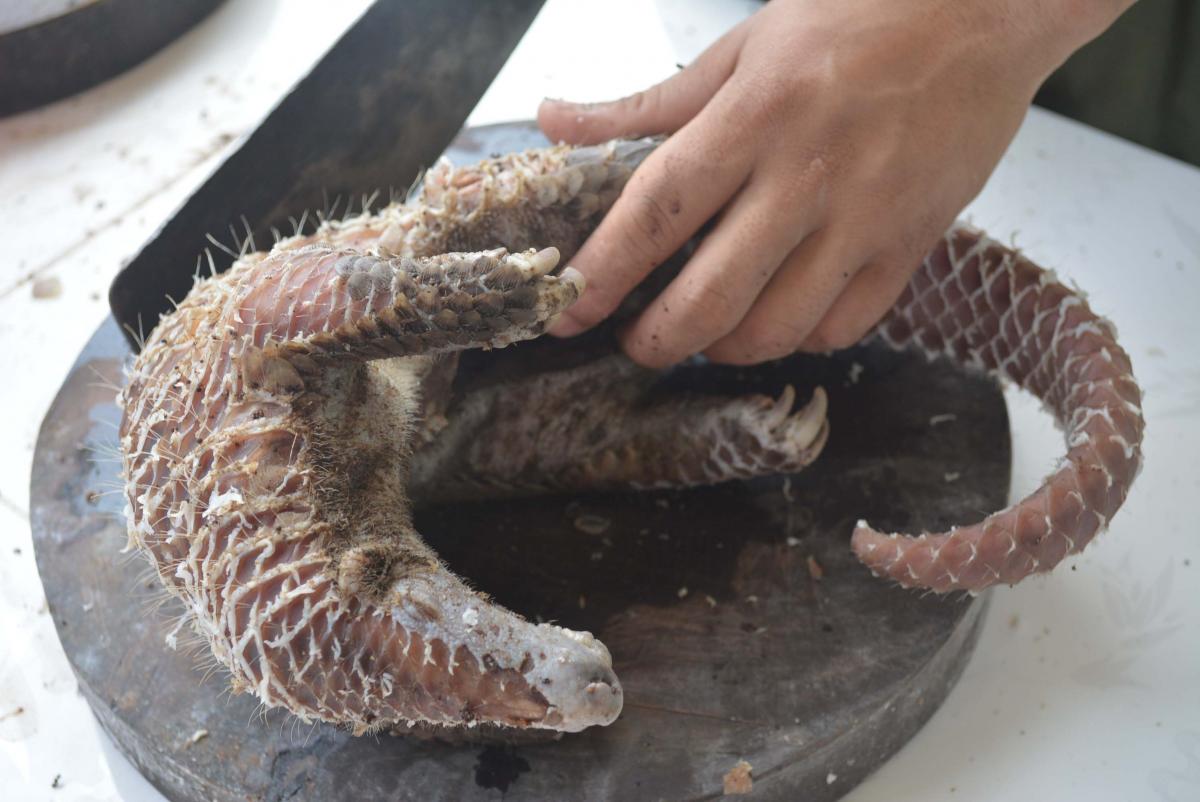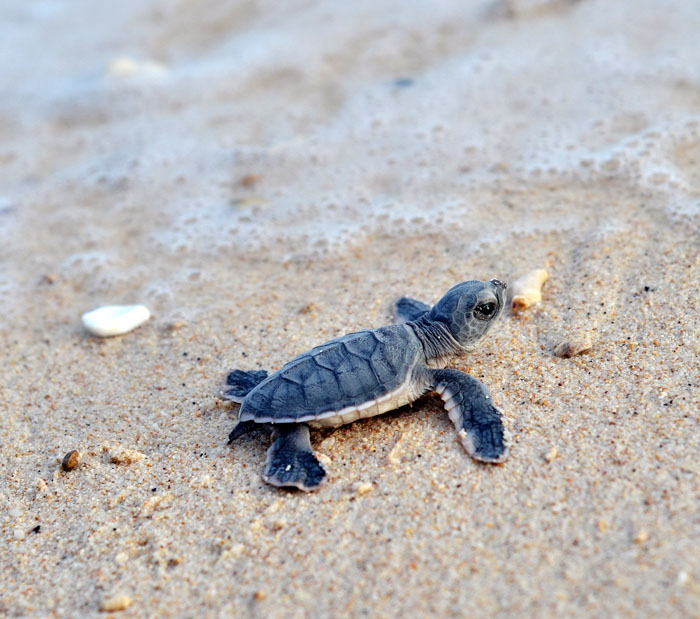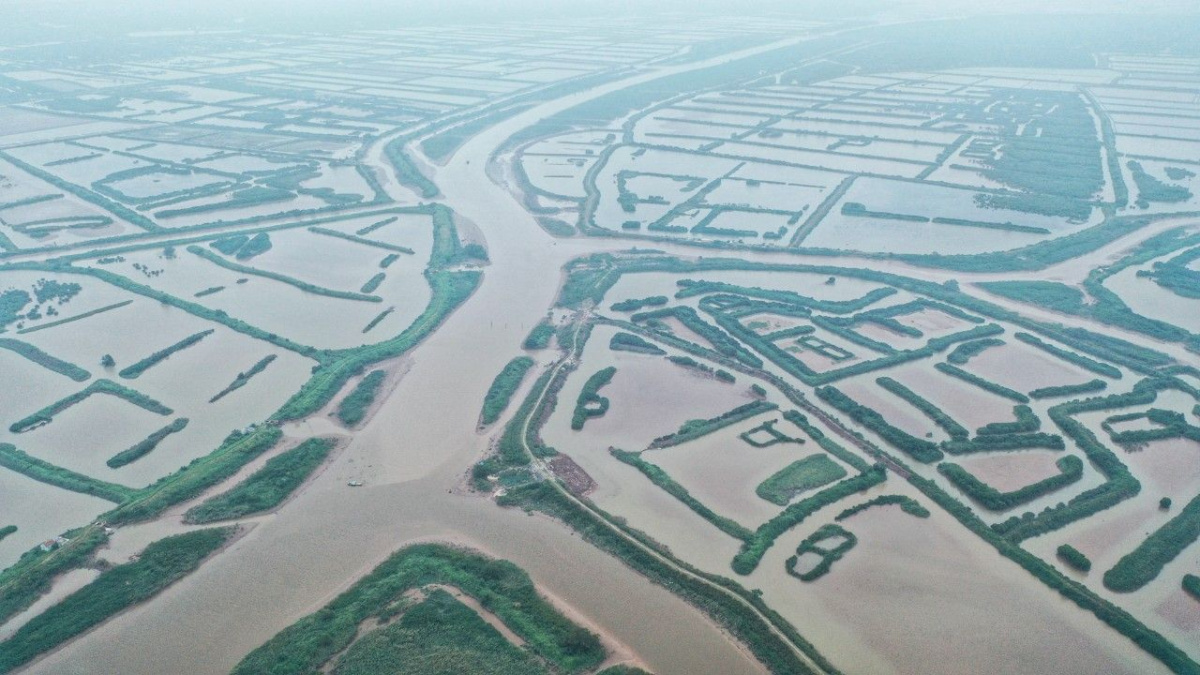IUCN hosts regional workshop on moving “Beyond Enforcement” in combating Illegal Wildlife Trade in Southeast Asia
Press Release: Ha Noi, Viet Nam, 15 - 16 November 2016 - Conservationists will meet in Hanoi to participate in a regional workshop for Southeast Asia with a focus on the Lower Mekong Region. “Beyond Enforcement: Involving indigenous peoples and local communities in combating illegal wildlife trade” will take place at the Hilton Hanoi Opera, No.1 Le Thanh Tong Street, Hanoi.

Photo: Pangolins were killed for meat consumption © SaveVietnamWildlife
The workshop is jointly coordinated by IUCN, International Union for Conservation of Nature, the IUCN CEESP/SSC Sustainable Use and Livelihoods Specialist Group (IUCN SULi), the International Institute of Environment and Development (IIED) and TRAFFIC, the wildlife trade monitoring network, as well as the (ICCA) Consortium, supporting Indigenous Peoples’ and Community Conserved Territories and Areas.
It will take place just before the Hanoi international Conference on Illegal Wildlife Trade, hosted by the Government of Vietnam (http://iwthanoi.vn/).
The objective of the workshop is to better understand the importance of engaging Indigenous Peoples and Local Communities as active partners in protecting wildlife against IWT, and how this can be done, through sharing and examining regional experiences and case studies across a number of Asian countries, with an emphasis on the Lower Mekong Region.
Globally, conservation efforts against IWT have concentrated on strengthening law enforcement and reducing consumer demand for illicitly sourced wildlife products. But considerably less emphasis has been placed on the role of people who live with wildlife.
“In the long term, the future of wildlife depends on the rural communities who live close to it,” said Dr. Rosie Cooney, Chair of the IUCN Sustainable Use and Livelihoods Specialist Group. “Unless these communities are empowered and motivated - by rights and benefits - to protect and conserve wildlife, poaching for illegal wildlife trade is going to continue driving these populations downwards.”
The workshop will be an opportunity for conservationists working in wildlife conservation particularly those working directly with rural communities, to share experiences and case studies that explore improved ways of supporting, motivating and engaging the people who live close to wildlife in protecting and conserving it.
“Communities play a key role in ensuring that harvest and trade of wild plants and animals is well managed,” said James Compton, TRAFFIC Senior Director for Asia. “By supporting legal and sustainable resource management, essential human needs for food, medicinal and economic security can be met in the Mekong countries and wider Southeast Asia.”
On the 17th of November, an IUCN delegation will present findings, conclusions and lessons learned from the workshop to visiting officials, experts and policy makers during a side-event at the Hanoi Conference.
“After two Beyond Enforcement workshops in Africa, it was important to hold this event in Southeast Asia where the opportunities and challenges are in ways quite different. Much of this region is characterised by industrial levels of poaching and very limited state presence. By drawing on examples from across South and Southeast Asia, the workshop is a chance to understand the preconditions for effective local community engagement in combating the illegal wildlife trade." shared by Jake Brunner, Head of IUCN Indo-Burma Region.
The workshop in Hanoi aims to build on an initial global symposium held in Muldersdrift, South Africa, in February 2015, and a regional workshop for West/Central Africa in Limbe, Cameroon in February 2016, which have generated important insights and led to advice for policy and decision - makers on addressing IWT.
The workshop is jointly funded by the Austrian Ministry of the Environment, the German Polifund project, implemented by GIZ on behalf of the German Federal Ministry for Economic Cooperation and Development (BMZ) and the German Federal Ministry for Environment, Nature Conservation, Building and Nuclear Safety (BMUB), and the Wildlife Trafficking Response, Assessment and Priority Setting (Wildlife TRAPS) Project, supported by the United States Agency for International Development (USAID).
Media Contacts:
Nguyen Thuy Anh, Communications Officer, mob: ++84-916451166, e-mail: thuyanh.NGUYEN@iucn.org
Jack Laurenson, Communications Editor, mob: ++84-936316203, e-mail: Jack.Laurenson@iucn.org



